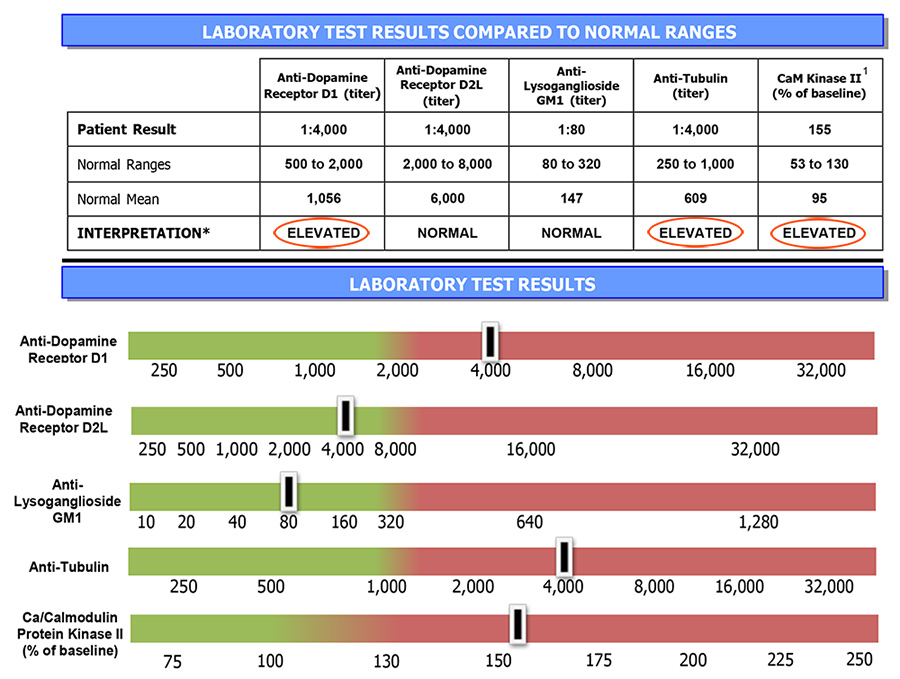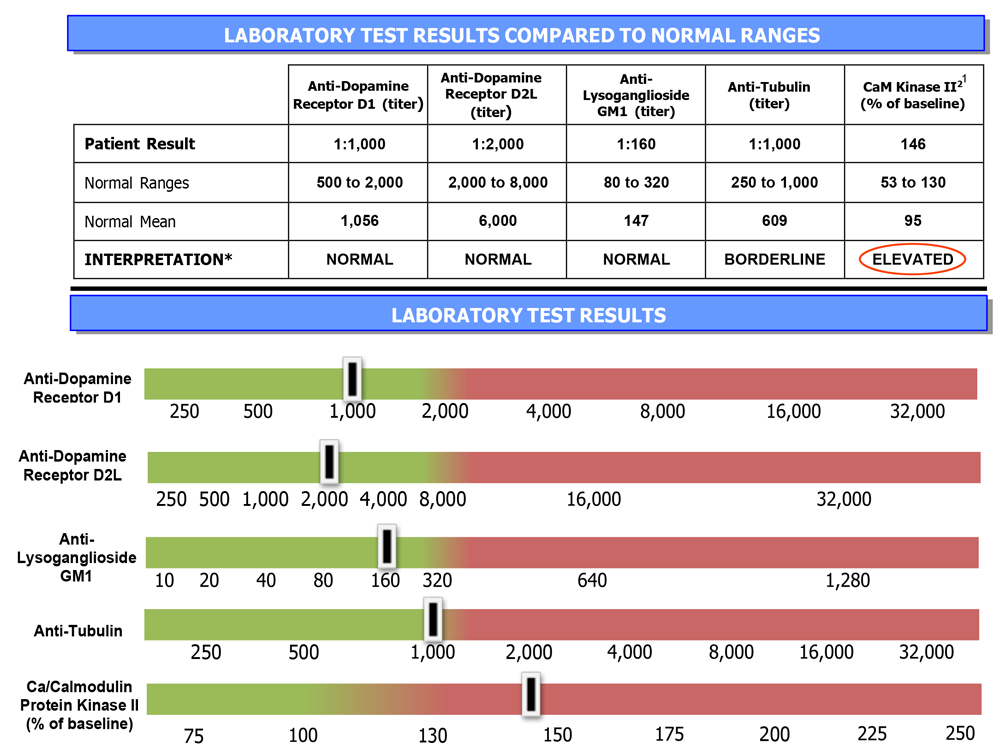Case Study #1
Presenting Symptoms: Seizures, obsessive/compulsive symptoms, poor concentration, emotional lability, aggression, sensory and motor abnormalities, gradually worsening over several days.
Course of Illness: Relapsing and remitting course
Diagnosis: Epilepsy; Disorder of immune mechanism; Personal history of other diseases of the digestive system; Methylenetetrahydrofolate reductase deficiency; Fatigue; Sleep problems.
Medical History: Known immune deficiency with multiple previous infections from organisms including Borrelia, Bartonella, C. Albicans, C. pneumoniae, HHV6, Staph, Strep, Mycoplasma pneumonia.
Family History: Positive for autoimmune disorders and allergies.
Pre-Treatment Cunningham Panel™ results: Elevated anti-Dopamine D1 autoantibodies 4,000 (normal range 500-2,000); normal anti-Dopamine D2L autoantibodies 4,000 (normal range 2,000-8,000); elevated anti-Lysoganglioside GM1 autoantibodies 640 (normal range 80-320); elevated anti-Tubulin autoantibodies 2,000 (normal range 250-1,000); elevated CaMKII 165 (normal range 53-130).
Treatment: Antibiotics, with additional nutraceuticals.
Status: Neurological symptoms significantly improved following treatment.
Post-Treatment Cunningham Panel™ results: Normal anti-Dopamine D1 autoantibodies 1,000 (normal range 500-2,000); normal anti-Dopamine D2L autoantibodies 2,000 (normal range 2,000-8,000); normal anti-Lysoganglioside GM1 160 (normal range 80-320); borderline anti-Tubulin autoantibodies 1,000 (normal range 250-1,000); elevated CaMKII 146 (normal range 53-130).
Anti-Dopamine D1 Receptor Autoantibodies — 4,000 (elevated)
Anti-Dopamine D2L Receptor Autoantibodies — 4,000 (normal)
Anti-Lysoganglioside GM1 Autoantibodies — 640 (elevated)
Anti-Tubulin Autoantibodies — 2,000 (elevated)
CaMKinase II — 165 (elevated)
Anti-Dopamine D1 — 1,000 (normal)
Anti-Dopamine D2L — 2,000 (normal)
Anti-Lysoganglioside GM1 — 160 (normal)
Anti-Tubulin — 1,000 (borderline)
CaMKinase II — 146 (elevated)
SUMMARY:
Patient symptoms pre-treatment consistent with elevated autoantibodies to Dopamine D1 (anxiety, sleep problems, emotional lability, aggression) and elevated anti-Tubulin antibodies (obsessive-compulsive symptoms, poor concentration), and elevated CaMKII (seizures, sensory and motor abnormalities).

Patient and parent estimate approximately 90% resolution of neurologic and psychiatric symptoms after treatment with antibiotics.

Understanding Test Results
Fill out the form below to schedule your appointment.
Note: This service is open to individual clinicians and group practices only.
